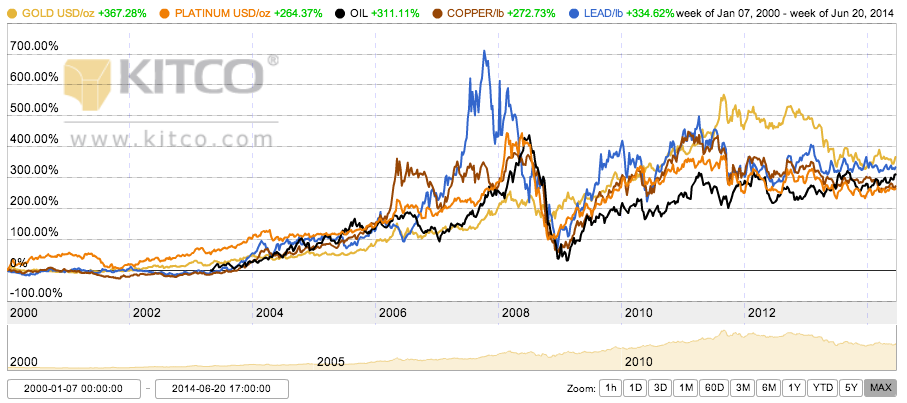Re: The Post-Market Economy - Part I: Chaos on Planet ZIRP - Eric Janszen
The correlation is difficult to not see:
The right question is: Why have gold and oil correlated this way over decades before and after the end of the international gold standard?
GAGFO theory explains the causation. I've attempted to explain it to business journalists but Triffin and a dozen other economists are required background reading and the average US business reporter studied pottery in college, so there isn't much chance that they are going to understand it well enough to explain it simply to their readers.
Originally posted by Slimprofits
View Post
The right question is: Why have gold and oil correlated this way over decades before and after the end of the international gold standard?
GAGFO theory explains the causation. I've attempted to explain it to business journalists but Triffin and a dozen other economists are required background reading and the average US business reporter studied pottery in college, so there isn't much chance that they are going to understand it well enough to explain it simply to their readers.


Comment